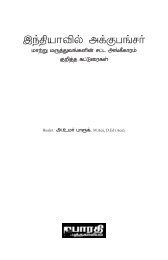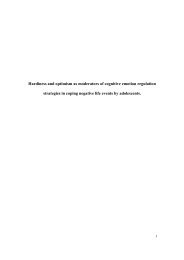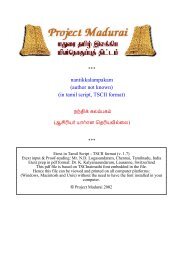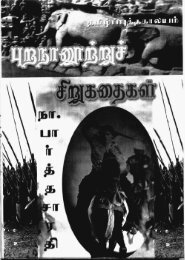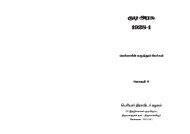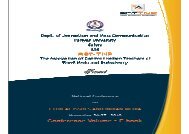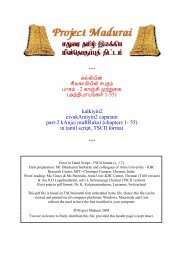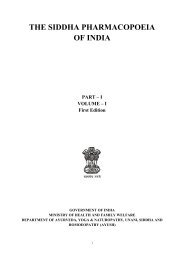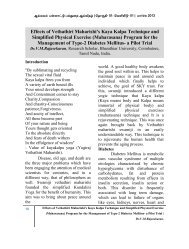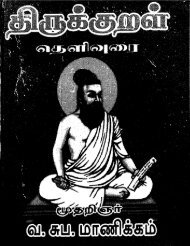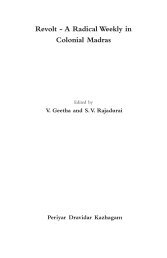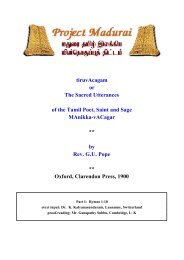THE FUNDAMENTAL RULES OF THE TAMIL NADU GOVERNMENT
THE FUNDAMENTAL RULES OF THE TAMIL NADU GOVERNMENT
THE FUNDAMENTAL RULES OF THE TAMIL NADU GOVERNMENT
- No tags were found...
You also want an ePaper? Increase the reach of your titles
YUMPU automatically turns print PDFs into web optimized ePapers that Google loves.
(3) The intention of Rule 26(c) is to allow the concession, irrespective of whether the higher post iswithin or outside the department to which the Government servant belongs or whether such post isunder any other Government (Central or State).(G.O. Ms. No. 55, Finance, dated 23rd January 1959.)(4) For the purpose of Rule 26 (c), it is not necessary that re-appointments to the lower post onreversion from the higher officiating or temporary post should be made immediately in continuation ofthe duty in the higher post. Any interruption due to leave or reversion to the permanent post will notdeprive a Government servant of the concession of counting his service in the higher post forincrements in the lower post, if appointed thereto subsequently.(5) The posts in temporary grades of pay in the Survey Department cannot be termed higher poststhan the corresponding ones in the permanent establishment, with more onerous and responsiblework attached to them for purposes of Rule 26 (c). Hence a Government servant in the SurveyDepartment, who holds a permanent post in one scale of pay and is officiating in a higher scale ofpay, cannot when appointed to a corresponding temporary post on fixed pay, count his service, in thetemporary post towards increment in the post in which he was officiating before he was appointed tothe temporary post.(G.O. Ms. No. 22, Revenue, dated 6th January 1931.)(6) If a Government servant while officiating in a post is appointed to officiate in a higher post, hisofficiating service in the higher post will, if he is re-appointed to the lower post, count for increment inthe lower post even though his officiating pay in the higher post is less than his officiating pay in thelower post.Example.—A Government servant officiating as an Examiner or Copyist on Rs. 96 per mensem in the scale ofRs. 90-3-105-4-125, if appointed to officiate as Clerk on Rs. 90 per mensem in the scale of Rs. 90-4-110-3-140 can count his officiating service as clerk on Rs. 90 per mensem for increment as Examinerin the stage of Rs. 96.(7) In order to allow the period of officiating service in a higher post to count for increment in alower post under the second sentence of Rule 26 (c), a certificate to the effect that the officer wouldhave officiated in the lower post had he not been appointed to officiate in the higher post should beobtained from the authority competent to appoint the officer to the lower officiating post. Thecertificate is not necessary in the case of an Assistant Surgeon appointed as Lecturer in clinical andnon-clinical departments and Tutors in non-clinical departments in the Tamil Nadu Medical Service.(G.O. No. 163, Finance, dated 20th March 1930, Finance Memorandum No. 33444, F.R. 54-2,dated 23rd April 1957, No. 10981, F.R. 60-2, dated 22nd February 1960 and No. 89812, F.R. 60-3,dated 29th October 1960.)(8) For the purpose of Fundamental Rule 26 (c), the officiating and temporary service in the higherpost will include the period of leave which count for increments in that post under Fundamental Rule26 (bb).[Government Memorandum No. 796869, Finance (C.S.R.)-2, dated 27th January 1953.]Implications of Rules 26 (a) to (c).The implications of clauses (a) to (c) of Rule 26 are as under—(i) Clause (a) prescribes that all duty, whether in a substantive or officiating capacity, in a post,permanent or temporary, either continuous or in different spells, counts for increments in the timescaleapplicable to that post. All the other clauses provide for circumstances in which interruptions induty in a post may so count.(ii) Clause (b) prescribes that the Government servant holding a permanent post in a substantiveor provisionally substantive capacity, is entitled to count interruptions of duty in that post due to (1)service in another post (permanent or temporary) whether in a substantive or officiating capacity or (2)service on deputation or (3) leave except extraordinary leave taken otherwise than on medicalcertificate for increment in the time-scale applicable to that permanent post. This clause, thus,excludes from its scope interruptions of duty in an officiating capacity in a permanent or in atemporary post; these are covered by clauses (bb) and (c).55



